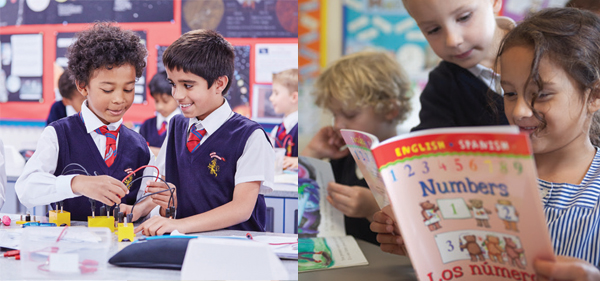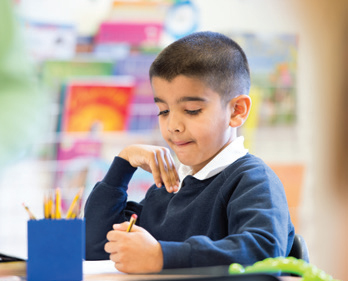Menu
SAFE AND SOUND – We want our children to thrive at school but also to be happy. Parents and teachers are challenged by a variety of outside influences but help is at hand, says Gillian Upton.

When Prince William waded into the cyber bullying debate in June with the launch of a task force to make online safer for our children, it placed this issue and the broader subject of wellbeing firmly on the table. Girls developing eating disorders, boys taking their own lives, the torment of the classroom – cyber bullying is the dark side of the web and presents massive danger for our children.
All schools take children’s wellbeing very seriously indeed. A school structure that has various safety nets, such as a house system, housemasters, tutors, good pastoral care and a strong co-curriculum where teachers meet pupils in different guises should catch vulnerable students, whatever their issues. “As staff practitioners we’re horrified,” says Andy Skinnard, Senior Deputy Head at co-ed school Alleyn’s. The school has appointed “digital mentors” this year, all older pupils, to flag up the dangers of the internet to younger pupils during dedicated periods of the school week.
“ALL SCHOOLS TAKE CHILDREN’S WELLBEING VERY SERIOUSLY INDEED”
Most schools have an e-safety policy (formerly an ICT policy) to cover social media that children, parents and staff must sign and adhere to. The heart of the problem, however, lies with the digital communications and images they receive from outside school, the sexting of messages, pictures and videos. Cyber bullying is exacerbated by the fact that children tend not to say anything terrified that they’ll be worse off if they report the problem – so it’s up to teachers and parents to notice new patterns of behaviour.
At another co-ed school, Emanuel, teachers urge children never to suffer in silence if they are feeling bullied or have friendship issues or other anxieties. “There are plenty of people here to help them,” explains Registrar Paul McMahon, “such as tutors, heads of section, two chaplains who are also trained counsellors, and a part-time nurse who specialises in counselling.
DEALING WITH FRIENDSHIP GROUPS AT SCHOOL
For most parents, the biggest fear for our children’s school years is not disappointing exam results but a child who is unhappy or finding it difficult to fit into a peer group.
First, establish the facts. For example, is there one individual or a group making life difficult? If so, why? Are they being provoked by your child? Is what your child describes at home being seen by staff? An initial dialogue with the class teacher is essential.
Good pastoral care will see an investigation conducted within 24 hours, and an agreed time frame. If required, arrange a follow-up meeting to agree on a course of action and give it time to work. If you are not happy with the outcomes, speak to a member of the senior management team. As a last resort, arrange a meeting with the head.
A word of caution: It is normal for primary-school children to be fickle and we need to allow them to choose and discover friends for themselves.
 “In addition, all pupils have weekly ‘life skills’ lessons with their form tutors where these sorts of issues can be discussed and where important skills such as resilience can be learnt.”
“In addition, all pupils have weekly ‘life skills’ lessons with their form tutors where these sorts of issues can be discussed and where important skills such as resilience can be learnt.”
What’s key is to build a child’s self worth. Schemes such as the Duke of Edinburgh’s Award and school clubs can help enormously in this. “At the root of it all is not believing in themselves,” says Elaine Halligan, London Director of The Parent Practice, an organisation which helps parents to bring out the best in their children.
“GIRLS ARE PARTICULARLY VULNERABLE AS THEY FORM CLIQUES AND TRAVEL UP AND DOWN A SOCIAL LADDER”
Girls are particularly vulnerable, says Halligan, as they form cliques and travel up and down a social ladder. She cites a typical scenario: “The queen bee girl personifies perfectionism and is the centre of attention; the others are wannabees who will do anything to be part of the group, they are people pleasers looking for external recognition.” Halligan also highlights a new cyber bullying phenomenon – bullies ignore a victim’s post so they receive no likes and feel isolated.
Parents need to watch the vocabulary they use with their children, eschewing words such as “victim” and “bullying”. “Children can problem solve,” says Halligan, while parents need coaching to help change their child’s view of themselves. Advising your child to ignore the bullies or to find another sport if they’re no good at one is not helpful. “It’s disempowering,” she says. “Don’t be too quick with advice as it suggests that children don’t know what to do. They learn helplessness and become risk averse.” See the panel (page 62) for Halligan’s top tips on how best to tackle this issue.